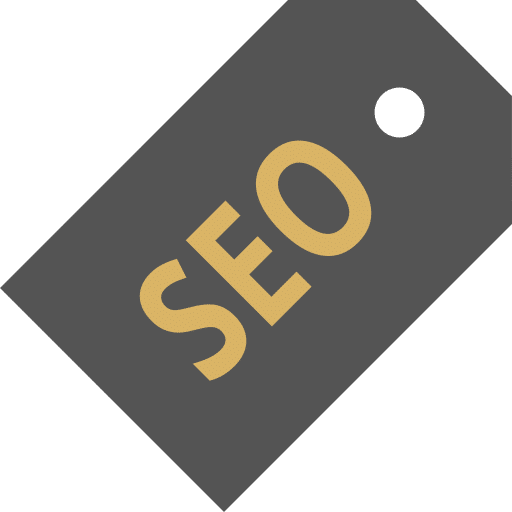Search Intent

What is search intent?
Marketing agencies like to throw around the word ‘search intent’ these days – but what does that mean, exactly? To put it simply, it’s the reason why a person is making a search.
Are they looking for directions to the nearest grocery store? Perhaps they were too lazy to type out the full Facebook URL. Or maybe, they just want to buy an air fryer – RIGHT. NOW.
Why is search intent important for SEO ?
Search engines revenue models rely heavily on users continuing to return to their platform, so it’s important for them to serve results that are relevant to their user’s needs. Search engines have many goals but the more accurately a search engine can predict search intent, the better they can deliver on-topic results.
Meeting search intent is one of Google’s primary goals, which in turn makes it a primary goal for anyone performing search engine optimization. When users search for a specific term and find information that isn’t relevant, it alerts Google that the search intent is likely misaligned.
Closely meeting search intent has a multitude of benefits for your website, such as:
- your page is likely to rank higher in search results
- you have better chances to be placed in Google’s Featured Snippets
- your clickthrough rate will be better
- it may decrease your bounce rate
- meeting search intent helps build your website’s authority. Visitors are likely to remember your website’s high-quality content and return the next time they have a similar question.
Most major search engines rely on machine learning algorithms to determine what content best fits each search query. When users visit a site and quickly leave for the next site in the results (often referred to as “pogo sticking”), it signals to the search engine one of three things. Either:
- the content on the website may be poor
- the user’s experience may have been poor, or
- the content didn’t fit the user’s search intent
When this occurs, it tells the search engine’s algorithms that the webpage wasn’t a match and reduces the likelihood that your page will appear in the top results for a similar search in the future.
As a website owner or digital marketing expert, the more accurately we can predict search intent, the better we can optimize our website’s keywords and content to be the most relevant to the user’s needs; in theory, this would result in our pages ranking higher in search results and (hopefully) increasing conversions!
Fully understanding the user’s search intent can help reach a wider audience in various stages of the sales funnel; from those who haven’t yet discovered your brand, to those ready to convert immediately, you can greatly improve your odds of reaching them by focusing your efforts on matching their intent.
When someone uses a search engine, their search will typically fall into one of four primary categories of intent; informational, navigational, commercial, or transactional. Sometimes, however, their search will fall into more than one category, as each individual search is different.
So what does this mean for your SEO service or strategy? By dissecting each category of search intent, you will better understand the goals of your website’s visitors, allowing you to tailor the content specifically to their needs and interests.
Informational
One of the most common types of search intent, searches with informational intent come from users looking for, well, information – this could be in the form of a recipe, an overview of next week’s weather, or even the dictionary definition of a word.
People with informational intent usually have a specific question or are looking to learn more about a specific topic. For example:
- Chicken noodle soup
- Weather Portland Oregon
- Bill Gates
- How to fix a flat tire
Navigational
When someone performs a navigational search, they are trying to get to a specific website. For instance, it’s likely that someone searching Google for “facebook” is trying to go to facebook.com; it was just more convenient for them to type it into Google than the URL bar.
For this reason, it’s important to make sure your website appears in the top results when someone searches for the name of your business. In some cases, users may also search for specific pages on your website, such as the login or support page.
Some examples of navigational searches would be:
- eBay login
- Codecademy
- Gmail support
Commercial
When someone is interested in making a purchase, they will often turn to search engines to perform a commercial investigation – this is when they will search for reviews, comparisons, and more detailed information regarding a product or service.
In this stage, they are beyond the informational stage and have committed to making a purchase. They have transactional intent but are still in the research phase, determining which product or service best fits their needs.
Some examples of commercial searches would be:
- Best VPN service
- MacBook Pro vs Razer Blade
- Best chiropractor in Ottawa Canada
- Mailchimp vs ConvertKit
Transactional
Those making transactional searches have the immediate intention of making a purchase – armed with their credit card in hand, they are ready to punch in numbers and part with their hard-earned cash.
Typically, searches in this phase of intent will be branded; consumers have already conducted their commercial investigation and have determined which specific product they want to buy. Now, they’re looking for the best place to purchase that product.
Some examples of transactional searches would be:
- Cheap air fryer
- Converse shoes sale
- Men’s Patagonia jacket large
- 2005 Honda Accord for sale Austin Texas
How to determine and optimize for search intent
Now that you’ve done your research and determined which keywords to target with which pages, it’s time to optimize your website.We’re specifically talking about your on-page SEO. Most experts recommend starting with your page’s metadata; this includes updating your page’s title tags and headings to incorporate your desired keyword targeting.
To improve your click-through rate, you can upgrade your title tag with some witty copy – just don’t over-do it and fall into the realm of clickbaiting.
Another great idea is to analyze your competition’s web pages; what are they doing successfully that you could implement on your own site? Take a look at some of the top-performing sites in your niche and examine their website’s formatting, tone, and topics, or look for anything that they might be missing.
Final thoughts
More SEO information













